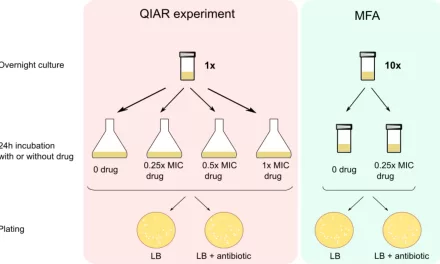A groundbreaking dietary intervention designed by researchers at Drexel University’s College of Arts and Sciences has shown promising results in helping individuals reduce their intake of ultra-processed foods (UPFs). Unlike most existing dietary programs, which primarily focus on weight loss or adherence to U.S. nutrition guidelines, this intervention specifically targets the reduction of UPF consumption, which has been strongly linked to an increased risk of chronic diseases and early mortality.
Tackling Ultra-Processed Food Consumption
Ultra-processed foods—such as chips, candy, and mass-produced packaged goods—are often engineered to be addictive, making them particularly challenging to eliminate from the diet. To address this issue, Drexel researchers developed a multi-faceted intervention that combined education, mindfulness strategies, one-on-one meal planning, and financial support to encourage healthier eating habits.
Participants in the study, published in Obesity and Science Practice, were provided with tools to better understand UPFs and their impact on health. They engaged in weekly group sessions, received individual coaching on meal planning, and were given financial aid in the form of grocery store gift cards to assist with purchasing fresh, whole foods.
Promising Results
The two-month pilot study included 14 adults with overweight or obesity who regularly consumed at least two UPF items per day. By the end of the program, participants had successfully cut their UPF intake by nearly half. Additionally, they experienced an average reduction of over 600 calories per day, with sugar consumption declining by 50%, saturated fat intake dropping by 37%, and sodium intake decreasing by 28%. Participants also reported an average weight loss of 7.7 pounds.
Dr. Charlotte Hagerman, the study’s lead author and an assistant research professor at Drexel University, emphasized the significance of these findings: “The results suggest that people can reduce their ultra-processed food intake if given the proper tools and that doing so can lead to meaningful health improvements in as little as eight weeks.”
Challenges and Future Research
Interestingly, despite the reduction in UPF consumption, participants did not significantly increase their intake of fruits and vegetables. The research team believes this highlights the need for future interventions to focus more explicitly on promoting whole-food consumption.
The study also underscored the influence of the food industry, which heavily markets UPFs through advertising and convenience. “The industry designs UPFs to be ultra-delicious, convenient, cheap, and omnipresent,” said Hagerman. “Reducing UPF intake can be extremely difficult, as these foods are constantly promoted in our daily environments.”
Given the promising preliminary results, the research team plans to expand the study to a larger sample size and explore the effectiveness of individual intervention components. They also aim to test the program on different demographic groups to assess its broader applicability.
Conclusion
The Drexel University intervention represents a novel approach to dietary improvement, offering individuals tangible strategies to reduce UPF intake and improve overall health. As awareness of the risks associated with ultra-processed foods grows, targeted programs like this could play a crucial role in shifting dietary habits and promoting long-term well-being.
Disclaimer: This article is based on research findings from Drexel University and is for informational purposes only. Readers should consult healthcare professionals before making any significant dietary changes.











